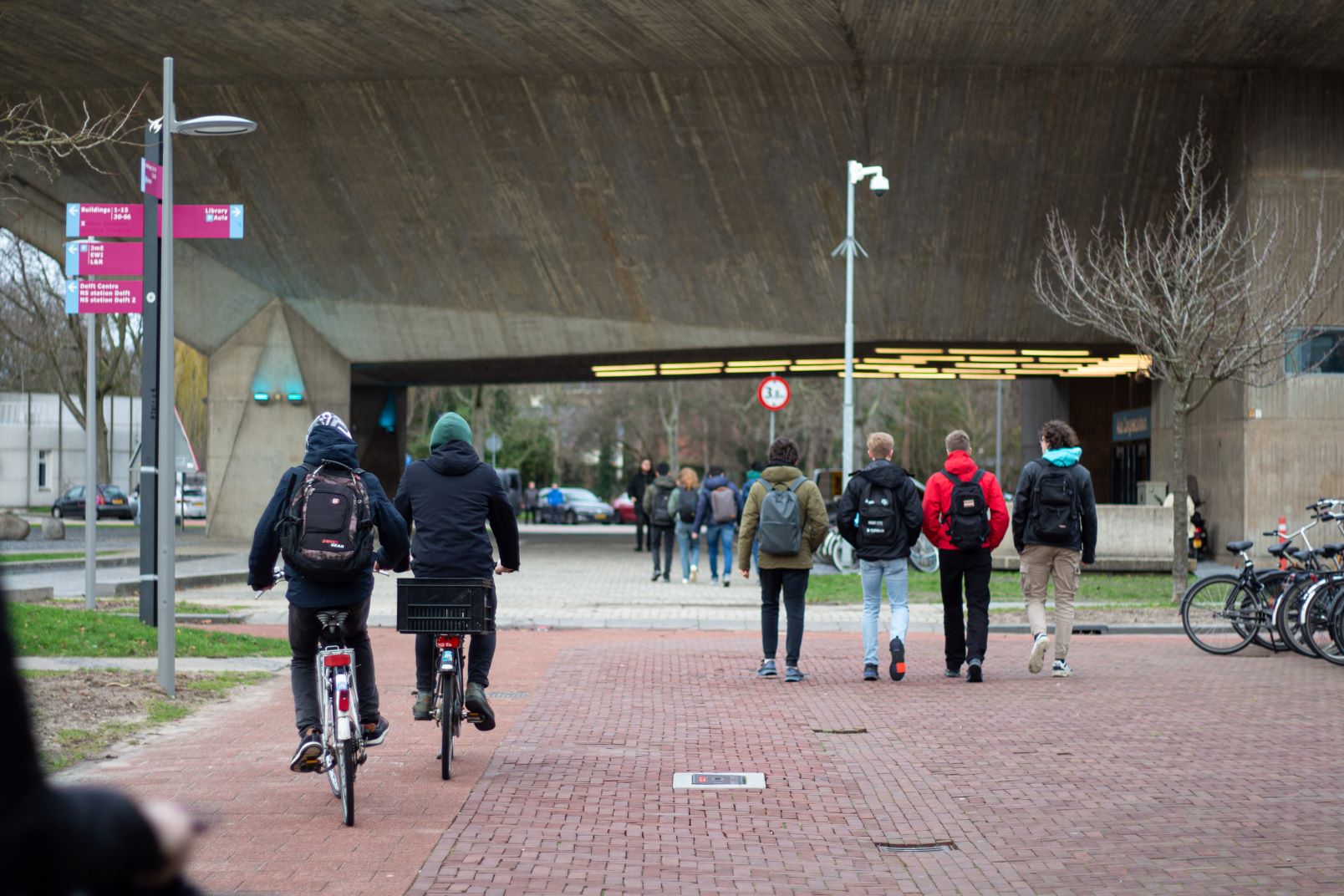Minister Dijkgraaf is putting forward legislation to channel the influx of international students. There will be central direction, but what it will look like remains unclear.
The number of international students at TU Delft has grown considerably in recent years. (Photo: Justyna Botor)
International students must also learn Dutch, according to a letter the minister sent to the House of Representatives on Friday, April 21. To the annoyance of the House, this letter on internationalization in higher education had been postponed several times.
It is good for society and the knowledge economy if international students come here, the Minister stresses in a press release. ‘But that flow of students must be controllable wherever necessary.’ Otherwise, he believes, internationalisation will lead to ‘overfull lecture halls, a high workload for lecturers and a lack of accommodation’.
The accessibility of study programmes will then come under pressure too, the Minister argues. He gives no further details on this last point, but it relates mainly to study programmes with a fixed quota. In the selection process for those study programmes, Dutch young people face competition from an increasingly large number of students from other countries.
Last academic year there were 115 thousand international students in the Netherlands, according to the ministry. That is 3.5 times as many as in academic year 2005-2006. At TU Delft, the number of international students increased from 1,392 in 2005 to 6,417 in 2021.
Brake and accelerator
Dijkgraaf’s conclusion is that ‘in addition to an accelerator, we need a brake, and in particular a steering wheel’. ‘The Netherlands is not an island – on the contrary, we are actually one of the world’s most internationally connected countries,’ the D66 Minister emphasises.
For some sectors it appears that he prefers not to stem the flow. Or as the Ministry puts it: the Minister wants a ‘made-to-measure solution’ for study programmes like ICT and engineering and for programmes in the sectors that are experiencing a labour market shortage.
The approach will also vary from one region to another. Higher education institutions close to the German and Belgian border have, in his opinion, a ‘different position’ with respect to internationalisation.
Action
So what does he plan to do? First of all there will be ‘a form of central control’ so that the entire education system can be examined with social interests in mind. For instance, the demand for talent has to be taken into account when considering the influx of students.
If the system is at risk of being jeopardised, Minister Dijkgraaf wants to have the power to ’take action’, according to the press release. But it is not yet known what that control will entail. The exact form it will take ‘will be worked out in greater detail in the time ahead’.
Fixed quota
The Minister wants to make university education more accessible by changing the rules relating to the fixed quota. Study programmes will soon be free to restrict the influx in specific tracks of the programme, the English-language track for example. Dutch-speaking students will then always be able to take part via the Dutch-language track, while a limit will be set for the number of students in the English-language track.
There will also be an emergency brake for when a programme is suddenly flooded with students from outside the European Union. If a study programme is in danger of becoming full, it can counter the unexpected rise with a ‘fixed emergency capacity’.
Learning Dutch
Finally, Dijkgraaf wants to foster Dutch language skills among all students at higher education institutions, including international students. The underlying theory is that being more proficient in Dutch will improve their employment opportunities. And it makes it more likely that foreign students will remain in the Netherlands after they graduate.
He is also asking higher education institutions ‘to retain and strengthen’ the Dutch language in their educational programmes. He writes: ‘Dutch is and remains the principal language, but the permissible exceptions will be better defined. That makes it possible to keep things under control.’
A new parliamentary bill is needed for this, however. According to the Ministry, this cannot become law before September 2024. If the House of Representatives adopts it, higher education will have to continue under the present system in the forthcoming academic year.
HOP, Bas Belleman/Delta
Translation: Taalcentrum-VU



Comments are closed.